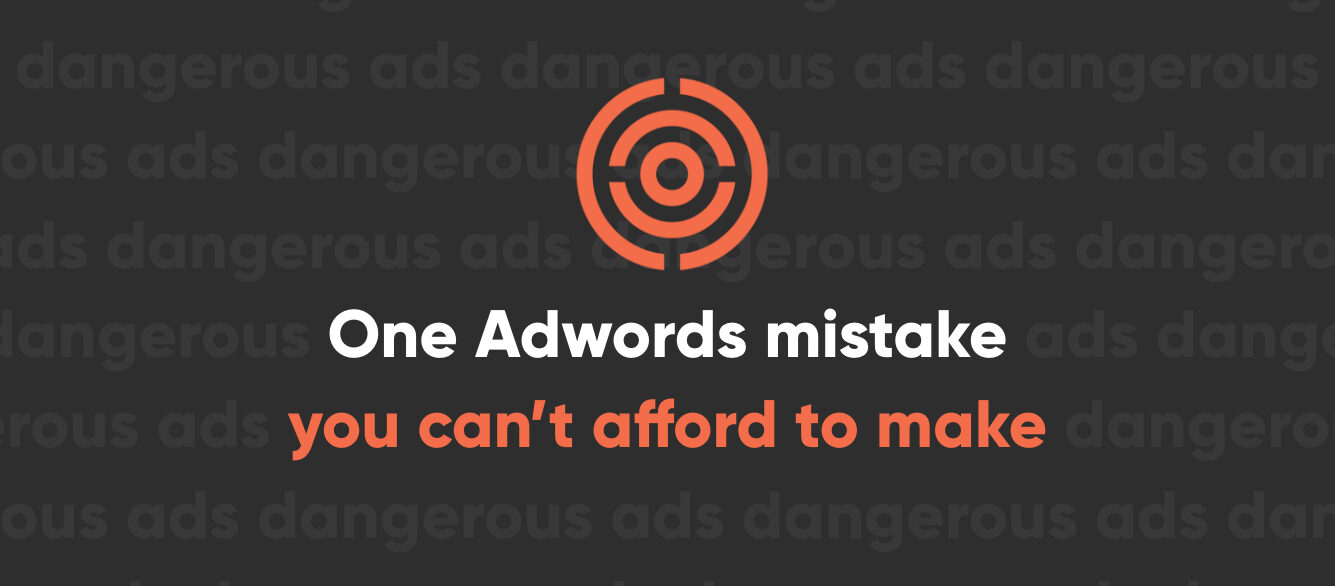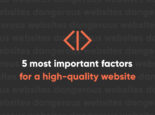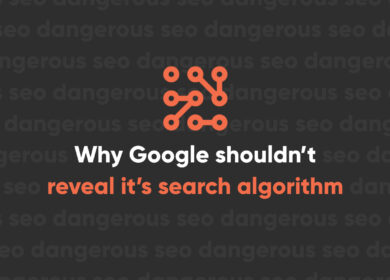
One Google AdWords Mistake You Can’t Afford to Make

We’ve managed a lot of Google AdWords accounts. Some were in shambles when we inherited them. Oh, the abominations we’ve seen. It would be pretty easy to compile a list of dozens upon dozens of digital advertising blunders. Like the account with just 1 ad for 5,000 broad match keywords.
Fortunately, we can get accounts into great shape pretty quickly (oftentimes by starting over). However, there is one mistake we can’t overcome, and it’s one we see again and again. It’s actually one of the most costly mistakes we see clients make. What is this terrible wrongdoing? It’s not spending enough money.
Wait a minute. Isn’t the idea of digital advertising to spend the least amount of money possible to get a positive return? Well, if you believe that, then you probably aren’t in the business of making money.
Setting a Budget that Makes Sense
You have to start somewhere. Pretty much no business owner is going to launch their first AdWords campaign by opening up a bottomless pit of money. So how much money should you start with? Well, first you’ll need to do some research to determine a reasonable starting budget. There’s no universal answer to the ideal AdWords budget. Google’s support section provides all kinds of ways to optimize your account and make sure you aren’t just throwing money away. This advice doesn’t assume you have all the money in the world. In fact, Google even cautions you against spending too much money. Find a budget that’s comfortable for you. Yeah, that’s the ticket.
But when it comes to making the most out of your campaign, you can’t afford to be limited by budget. Here’s a fact: Google wants you to spend more money. That’s how Google makes money. But here’s another fact: when you spend more money, you stand to make more money. Disclaimer: this assumes you are running a somewhat optimized campaign and that you know basic things about your business. If your son’s brother’s friend’s mom’s cousin who clicked on an ad once is running your campaign, then you probably aren’t going to make any money no matter how much you spend.
Limited by Budget
Google doesn’t tell you to spend all your money on advertising. This may come as a surprise, but Google actually wants you to make money and have a good experience with AdWords. But they aren’t shy about telling you when your campaign is limited by budget. Here’s what happens when you are limited:
- Your ads don’t show very often
- You don’t get as many clicks as you should
- You don’t get as many conversions as you should
- You don’t get as much business as you should
- The competition wins
There’s a simple reason why so many AdWords campaigns are limited by budget: companies set arbitrary budgets for digital advertising. It often works like this:
Hey, let’s spend $2,000 a month on AdWords!
Sounds great! How did you come up with that budget?
I dunno. It just sounds like enough money. Oh, and my friend Fred who works for a small company in a completely different industry spends $2,000 a month and says it’s great.
Great indeed! Except Fred’s in a low-competition industry and only pays a buck or two a click. Your industry is uber-competitive and will easily cost ten or twenty times that. But if you want to try to run on that budget, we can do it. Yeah, you’ll only make it through a few days and you’ll never be able to optimize the account or make any money, but at least you’ll be keeping up with Fred. That is your business goal, right?
Running Out Before the End of the Month

It’s pretty common for a client’s budget to run out before the end of the month. This leaves two options:
- Go over budget
- Pause ads and let the competition win
Believe it or not, most business owners opt for option 2.
But I can’t go over budget. Then I’ll be losing money!
Are you sure about that?
It’s All About the Return

Here’s a common scenario:
Company A is seeing a 375% return on ad spend (ROAS) for their monthly AdWords campaign. Their goal to be profitable is a 250% ROAS. But they’re operating on a limited AdWords budget, so their ads only run for half the month. That’s a lot of money left on the table.
The ideal AdWords budget will achieve two things:
- Last all the way through the month (and therefore maximize your potential)
- Hit your target ROAS
If you’re hitting your target ROAS, it’s counterproductive to have a limited budget. It’s equivalent to willfully limiting your profit. Why have ads off for the last week when you could still be getting that 375% ROAS?
Sure, we could make more money, but then we’d have to give more money to Google. And no one wants to do that!
Right. Except for the companies that want to maximize profitability and exceed their business goals.
Don’t let an arbitrary cap on your digital advertising budget prevent you from maximizing your business potential. It’s time to pick a budget that will get you through the month without making compromises.

Nate Tower
Nate Tower is the President of Perrill and has over 12 years of marketing and sales experience. During his career in digital marketing, Nate has demonstrated exceptional skills in strategic planning, creative ideation and execution. Nate's academic background includes a B.A. with a double major in English Language and Literature, Secondary Education, and a minor in Creative Writing from Washington University. He further expanded his expertise by completing the MBA Essentials program at Carlson Executive Education, University of Minnesota.
Nate holds multiple certifications from HubSpot and Google including Sales Hub Enterprise Implementation, Google Analytics for Power Users and Google Analytics 4. His unique blend of creative and analytical skills positions him as a leader in both the marketing and creative worlds. This, coupled with his passion for learning and educating, lends him the ability to make the complex accessible and the perplexing clear.




